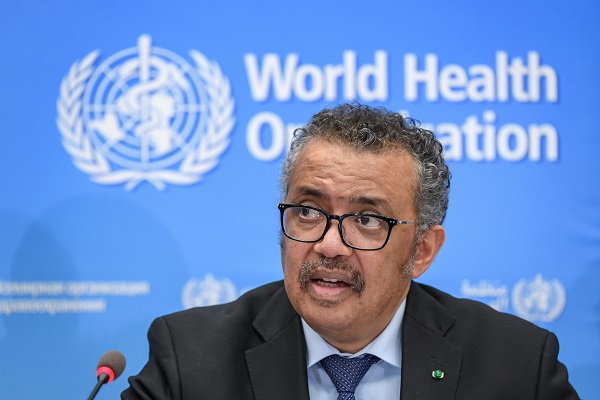… almost 1 billion people remain unvaccinated – Ghebreyesus

In the face of the continued rising cases of the COVID-19 in over 70 countries, the director-general of the World Health Organisation (WHO), Dr. Tedros Ghebreyesus, has said the Access to COVID-19 Tools (ACT) accelerator faces over $15 billion in shortfalls.
Speaking at the second global COVID summit today (May 12, 2022), he lamented that while the ACT Accelerator, which remains the best way to get life-saving COVID-19 tools to the countries that need them, suffers a shortfall, cases are increasing in more than 70 countries with almost a billion people in lower-income countries still unvaccinated.
He added that the WHO Strategic Preparedness, Readiness and Response Plan, the organisation’s comprehensive roadmap for ending the pandemic, also faces a shortfall of US$1 billion.
Ghebreyesus pointed out that although reported cases and deaths are now decreasing globally, at the same time, testing rates globally are plummeting, “making us blind to the evolution of the virus”. He contended that it is misguided to think the pandemic is over, as the pandemic is not over anywhere until it’s over everywhere.
“We must continue to support all countries to reach 70 per cent as soon as possible, with a focus on those most at risk.
“Vaccine supply has improved, but absorption has not kept pace, due to insufficient political commitment, operational capacity and finance, combined with vaccine hesitancy driven by mis- and dis-information.
“Our biggest challenge now is supporting in-country delivery of vaccines. For tests and new therapeutics, the problems are supply-side, with insufficient funds, and insufficient access,” he added.
He assured that this month, the World Health Assembly WHO will present a plan to strengthen the global architecture for health emergency preparedness, response and resilience.
This, he said, includes the creation of a financial intermediary fund to support equitable access to life-saving tools in the face of future epidemics and pandemics.
The WHO boss made four requests: “First, we call for policy commitments to boost vaccination, testing and treatment in countries. Second, we call for investment in local production. Third, we call for financial commitments to fully fund the ACT Accelerator and WHO’s Strategic Preparedness, Readiness and Response Plan.
“Fourth, we call for political commitment to support the Financial Intermediary Fund and a new architecture for global health security.”


